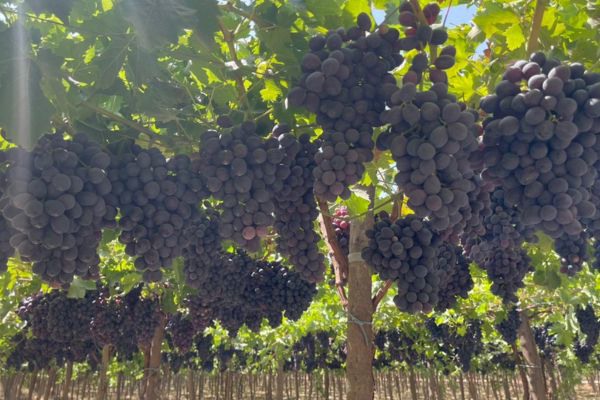A variety of black table grapes, known locally as "Black Magic", is widely used by Egyptian growers and is in high demand on local and export markets. However, growers have found themselves in legal turmoil over the use of this variety.

An Egyptian grower said on condition of anonymity: "The variety entered Egypt through an Egyptian company that held exclusive marketing rights. However, about ten years ago, plants were delivered by mistake, and since then the variety has been passed on from one grower to another, and has become very popular thanks to its superior quality."
"More and more growers have reproduced the seeds, completely unaware of how they landed in Egypt and who owns the intellectual property rights. The variety has become popular under the name Black Magic, which is not its trade name, and vast acreages are being produced, with strong demand from Russia, East Asia, and Arab countries."
However, the company holding the rights has emerged and lodged complaints against several growers, the source adds. "Egypt has signed the UPOV Convention (International Union for the Protection of New Varieties of Plants), which puts growers in a very delicate situation.
"The growers found themselves in this situation inadvertently, due to a mistake made by a third party, and had no intention of abusing the use of the variety. We call on the rights-holding company to engage in a dialogue to find a solution acceptable to all. We are, of course, willing to pay for the rights to use the seeds. But the company simply wants to remove the areas, which for us means the waste of huge investments and unbearable losses, especially for small-scale growers who have used the seeds in good faith."
The grower concludes: "It is in everyone's interest to resolve this situation, which is devastating for all parties, and to regularize the use of these seeds without damage to either party, in a win-win situation."
